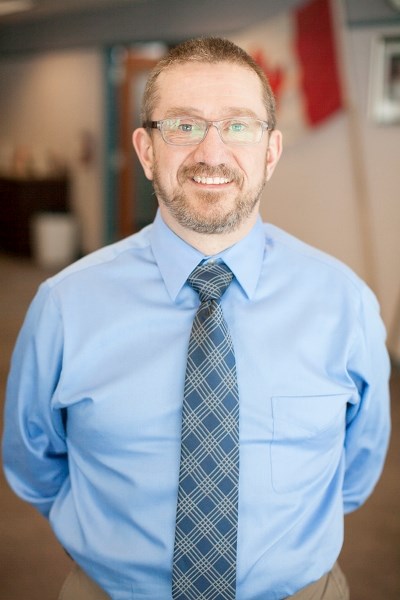As part of what's being called an “experimentation” with ways to better the systems the Town of Olds uses to operate, the town will spend 2014 looking at how to improve its relations, both internally and externally, and the overall way it carries out its community services.
Norm McInnis, the town's chief administrative officer who is spearheading the process, said the town decided not to pursue a traditional operational or structural review because the structure of the town's departments is “not an issue” right now.
Instead, he said, the town will carry out an “experimentation on breaking the shackles of the way we've always done things.”
“What we need to work on is how to engage better, both internally and with residents in the town of Olds to understand what their expectations of us are and how we can fulfill those expectations given the resources and the tools that we have.”
This process follows similar projects carried out in 2012, when the town focused on how to improve customer service, and in 2013, when the focus was on personal development and helping town staff find the tools and skills they needed to do their jobs in the best way possible, McInnis added.
He said next year's focus on “systemic issues” comes from the concept of the “learning organization,” which McInnis said he has studied extensively.
Learning organizations are, according to Peter Senge, one of the concept's proponents, “organizations where people continually expand their capacity to create the results they truly desire, where new and expansive patterns of thinking are nurtured, where collective aspiration is set free, and where people are continually learning to see the whole together.”
Town employees gathered on Dec. 11 to discuss how the process of exploring ways to better the town's systems will work and McInnis said the example of the Dec. 2 blizzard that struck the community was brought up as a way where changes might be made to town operations.
Questions were asked, he said, about why the town carries out snow removal activities and why town employees get upset when members of the community express frustration when they can't move about town due to snowy roads.
“So we really want to dig into some of these questions and understand the purpose of what we do,” McInnis said. “And maybe by doing that, it will lead to us grouping our work differently or engaging; finding the intelligence from the feedback we get from the community.
“Really, what is it that they want us to do and how can we meet those needs?”
Other questions focused on how town staff could better support social media communications with the community during a crisis such as a large snowstorm and how snow removal efforts following a blizzard affect the town's finances.
One example of the changes the town could explore in the future when it comes to town operations during a blizzard situation focused on schools and town facilities, McInnis said.
Town employees discussed the idea of closing town facilities such as the Olds Sports Complex and the Aquatic Centre during a storm, informing the community about the closures so residents don't try to venture out in poor driving conditions and then possibly have staff from those facilities assist with snow removal or knocking on doors to ask people to move vehicles parked on roadways that are being cleared.
“Can we do our work differently?” McInnis said.
Communication systems are another area where the town will look at possible changes, he added.
An emphasis would be given to more personal methods of sharing information such as having different departments send a representative to a morning staff meeting to report back to the department on information shared in the meeting, or having team leaders review proper processes and procedures with other staff.
“It's a different type of communication. We rely on email and technology, but sometimes we need to get back to face-to-face, more rich, meaningful discussions.”
Another experiment the town will carry out next year under the process is looking at whether money used for at least one staff position could be allocated elsewhere.
Scott Chant, the town's utilities and public works manager has been appointed as the interim operational services director to replace Larry Wright, McInnis said.
The utilities and public works manager position will remain vacant, he added, as the town explores how the salary for that position might be used in other ways.
“It still fulfills one of my hopes that we can take resources from that upper tier management piece and deploy them a little more boots on the ground,” McInnis said.
While McInnis said the process could lead to a future structural review if it is determined that the town's current departmental framework “may not be the best structure for us,” he added the assessment of the town's systems will have “no effect” on staff jobs.
“We're committed to working with the resources that we have now. We're not trying to find efficiencies at the current time, but what we certainly are trying to do as we continue to grow, can we keep the growth of our bureaucracy at a minimum.”
The response from town employees at the Dec. 11 meeting to the idea of looking at improving town systems was “very positive,” McInnis said.



